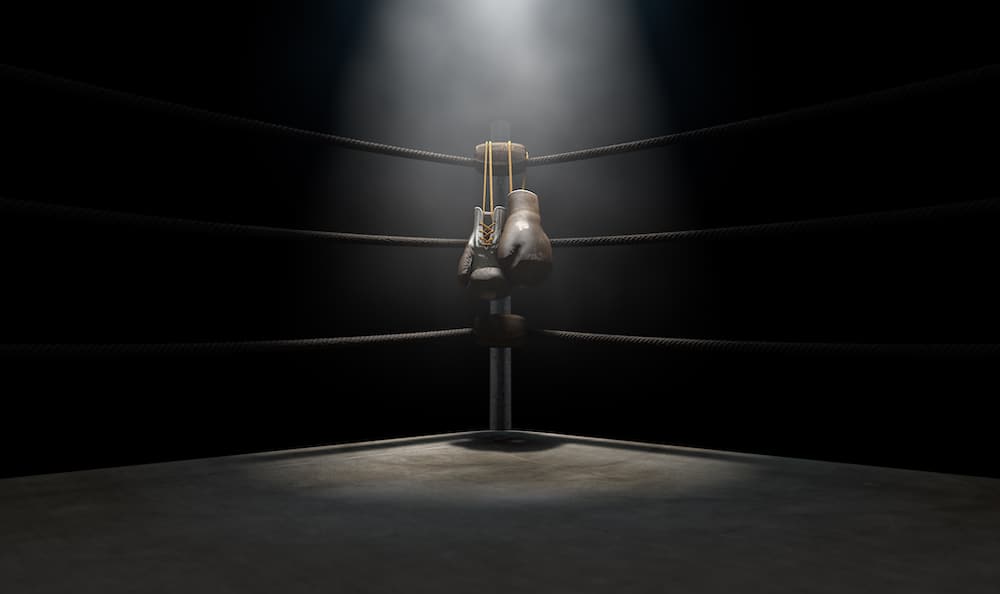In recent months the music publishing community has been increasingly vocal about a number of disputes. Eamonn Forde examines the main issues at stake and why silence is not always golden…
The choice of words is what is most telling here. A “food fight”; “shocked”; “one giant lie”; “abusive behaviour”; “bad actors”; “the final straw”; “fake news”; “straight up lies”; “Take your f*cking foot off our necks”; “you cheap pieces of shit”.
These are not, as you might expect, below-the-line comments on a newspaper article about Brexit, Trump or climate change; these are all comments from music services, music publishers and other music professionals in the past few weeks as multiple battle lines are drawn across the industry.
Traditionally licensing deals happen behind closed doors and are commonly followed by NDAs as both sides grin for the camera and provide effusive comments for the press release. They all suggest that everyone is on the same page and that everything is going swimmingly.
Perhaps influenced by the divisive discourses that swirl through modern politics in 2019, industry disputes are now happening with the gloves off and very much in public.
Here music publishers, maybe exhausted of being seen as the taciturn ones in the industry, are no longer biting their tongues and this is all escalating with three issues that are very different but also very similar. They are different in that they relate to different countries and services; but they are similar in that the publishers all believe they are being sold short and they are going to make sure everyone knows about it.
The first barrage happened at the end of February in India. Long seen as a market brimming with potential for digital music, with homegrown services like Gaana JioSaavn leading the way, India has been high on Spotify’s priority list. But as it moved to open there, Warner/Chappell stepped forward to say it couldn’t as it didn’t have a licensing agreement with it in place. Spotify argued a statutory licence was sufficient as a workaround to get it into the country. Warner/Chappell responded by filing for an injunction to stop it.
Spotify did launch in India and made a big noise about passing 1m users in the first week – albeit with key Warner recordings absent – but the tensions soon escalated. Warner went relatively gently to begin with, telling Variety, “After months of negotiations, Spotify abruptly changed course and has falsely asserted a statutory license for our songwriters’ music publishing rights in India. We had no choice but to ask an Indian court for an injunction to prevent this.”
Spotify CFO Barry McCarthy, as all of this was unfurling, tried to lighten the mood at a conference organised by Morgan Stanley. “We’re having a food fight with Warner,” he said. “Lots of drama.”
That jocular tone did not last as Spotify responded to the injunction by accusing Warner of “abusive behavior” and that this “would harm many non-Warner artists, labels and publishers, and prevent Spotify from competing in the market”. Warner said Spotify’s accusations were “appalling” and added, “We’re shocked that they would exploit the valuable rights of songwriters without a license.”
Within Indian copyright law, even if Spotify is found to have infringed any copyrights that Warner controls (outright or even has a small stake in) it would only be liable for what it would have had to pay in royalties anyway, with the possibility of maybe also paying Warner’s legal fees. There is also complex legal discussions around what a collective statutory licence does and does not cover. While Spotify had agreements in place with multiple publishers ahead of the launch in India, Warner/Chappell has also been backed in the fight by the International Confederation of Music Publishers. They might have deals with Spotify but the other publishers also understand the wider significance of what Warner is arguing here.
Both Warner and Spotify are stressing that they want to reach a resolution that works for both sides, but the dispute is very much in the public arena now and, amid the fighting talk here, whoever blinks first will set precedents for how other negotiations follow and how weak or strong those on the other side of the table see them.
While this was one service tussling with one publisher, what has been happening in the US since early March is a much bigger – and a much louder – fight between multiple streaming services and the entire music publisher community.
Back in early February, and after a protracted lobbying process from all side, the new royalty rates for publishers on on-demand streaming services were set by the Copyright Royalty Board (CRB). The statutory mechanical rate would go from 10.5% of a service’s revenues today to 15.1% by 2022 (in effect a 44% rise). At the time, David Israelite, head of the National Music Publishers’Association, said that streaming services should accept the rates and not avail of a 30-day window that would allow them to appeal – arguing that any appeal would “in effect declare war against songwriters”.

The NMPA’s David Israelite
But, just as that 30-day window was about to close, Spotify, Google, Pandora and Amazon all filed notice that they would indeed appeal the CRB rates. Apple, however, said it was accepting the rates. But one service agreeing to the rates – as big as Apple Music is – was not going to stop things going nuclear.
“No amount of insincere and hollow public relations gestures such as throwing parties or buying billboards of congratulations or naming songwriters ‘geniuses’ can hide the fact that these big tech bullies do not respect or value the songwriters who make their businesses possible,” said Israelite in a statement. He also told MBW that “Spotify and Amazon are the bad actors”, stopping to praise Apple as people who “respect the writers much more than their competitors do”.
He added, “Songwriters are important business partners to Spotify, but they’re treated instead like indentured servants. It’s insulting, it’s something that I think the songwriter community is getting fed up with, and I think this may be the final straw that breaks the back of [that] relationship.”
Spotify, despite not being the only service appealing the CRB rates, was the one taking most of the heat here and came out in defence of its reasons for appealing. It said that, despite what publishers were claiming, it was not “suing songwriters” and that it did believe the rates should be higher. But – and of course there was a but – only if they cover “the right scope of publishing rights”, saying the new rates did not consider the costs for videos and lyrics.
Israelite was not going to roll over. “I didn’t think Spotify could sink much lower – but they have,” he told MBW. “This statement is one giant lie. I’m sure a PR team spent a great deal of time and energy crafting a statement to try to deceive artists and songwriters. They must think artists and songwriters are stupid. They are not.”
Music lawyer Dina LaPolt tweeted that Spotify’s blog defending its decision was “straight up lies” and “fake news”.
FAKE NEWS FROM SPOTIFY! Straight up lies. You Might Have Heard about the Streaming Industry’s CRB Appeal—Here’s What You Need to Know – News – Spotify for Artists https://t.co/X3SKTY07kh
— Dina LaPolt (@dinalapolt) March 11, 2019
The rest of the publishing world circled their wagons. Martin Bandier of Sony/ATV wrote to the songwriters on his company’s books, urging them to make their voices heard in this debate. “I am incredibly disappointed that Spotify and the other companies have chosen to attack songwriters by appealing the long-overdue rate increases,” he told them. “The move flies in the face of everything that I have fought for on behalf of songwriters for fair-market rates.”
Others chose not to take such a measured approach, choosing instead to turn the air blue. Songwriter Ross Golan tweeted about the services appealing the rate increase, “Take your f*cking foot off our necks! Shame on streaming services who are fighting this rate increase for songwriters who are just trying to pay for food!” He directed people to use Apple Music instead, saying it was the only streaming service to support the songwriter community here.
The bit firmly between her teeth, LaPolt tweeted again, “@Spotify you cheap pieces of shit – Fuck you and your secret bullshit genius awards. You should be ashamed of yourselves. You too @amazonmusic Grow a set.”
This is far from over, but it is clear that the songwriters and publishers are not going to go down without a fight – and they understand that making this as public (and as vitriolic) as possible might not win the case on its own but it certainly won’t harm it.
Finally, after working up a sweat in their battles with streaming services, the publishers have been targeting a company which uses music… to work up a sweat. Fitness company Peloton, currently valued at over $4bn, uses music in many of its exercise classes but a variety of independent publishers argue that it does not have the requisite licences in place and filed to sue the company for $150m for over 1,000 alleged copyright infringements.
Downtown Music Publishing, Pulse Music Publishing, ole, peermusic, Ultra Music, Big Deal Music, Reservoir, Round Hill, TRO Essex Music Group and The Royalty Network are the publishers in questions and they handled the rights to songs recorded by mega-artists like Rihanna, Bruno Mars, Lady Gaga, Ed Sheeran, Ariana Grande and Drake.
“Peloton has great respect for songwriters and artists,” said the fitness company in a statement. “In fact, we have partnered with each of the major music publishers, record labels and performing rights organisations, and many leading independents. We have also invested heavily to build a best-in-breed reporting and licensing system to support our partners and provide our members with a world-class fitness experience.”
Israelite was quick to respond on behalf of the publishers filing the action. “It’s not just a case of where they only cleared a fraction of a song,” he told Billboard. “There are many instances where they didn’t clear any of the song.”
Peloton CEO John Foley responded in a letter to the company’s members, “Peloton respects the rights of all creators, including performing artists and songwriters. The filing of the lawsuit is unfortunate and disappointing, as it occurred after what appeared to be fruitful discussions with most of the publishers named. Regardless, out of an abundance of caution, we have decided to remove classes that feature songs that were identified by these publishers.”
It is not clear if – or when – the disputed songs will return to the Peloton service, but the company was, to its credit, swift to respond and remove the disputed music from its exercise classes. Maybe it wanted a quick resolution, but the timing of this is critical as it will have been more than aware of the way the disputes with Spotify, Google, Amazon and Pandora escalated and went very public very quickly.
In 2019, publishers are increasingly awake to the fact that directing the public narrative around disputes can be as important as the licensing negotiations themselves. Silence is not always golden. And besides, if you bite your tongue too hard and too often you’ll cleave it clean off.


